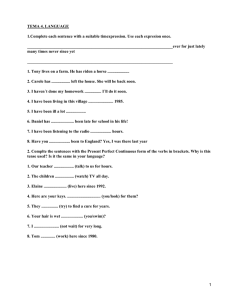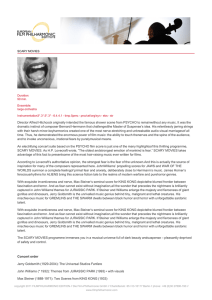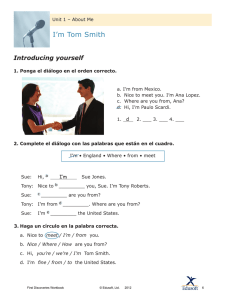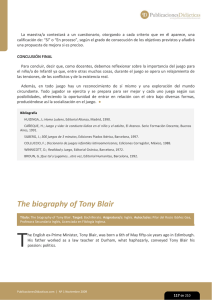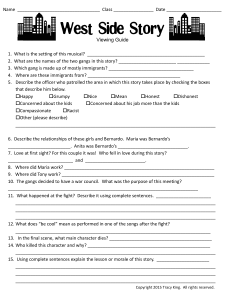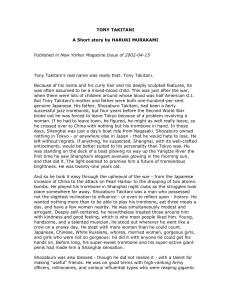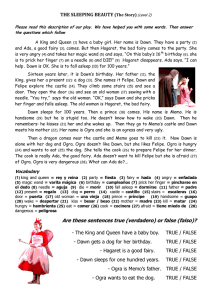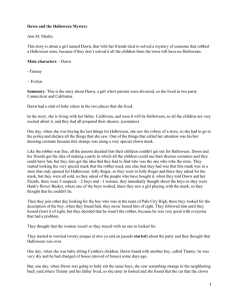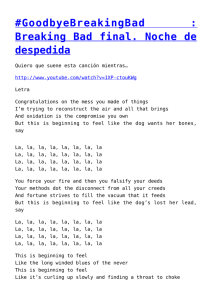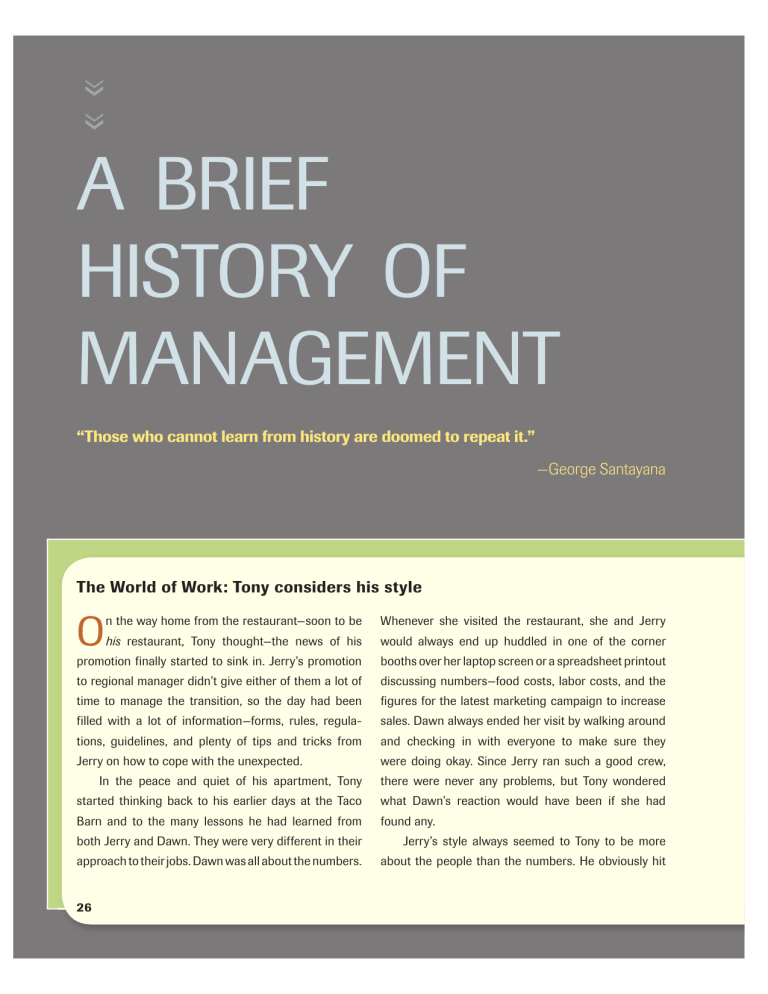
A BRIEF HISTORY OF MANAGEMENT “Those who cannot learn from history are doomed to repeat it.” —George Santayana The World of Work: Tony considers his style O n the way home from the restaurant—soon to be Whenever she visited the restaurant, she and Jerry his restaurant, Tony thought—the news of his would always end up huddled in one of the corner promotion finally started to sink in. Jerry’s promotion booths over her laptop screen or a spreadsheet printout to regional manager didn’t give either of them a lot of discussing numbers—food costs, labor costs, and the time to manage the transition, so the day had been figures for the latest marketing campaign to increase filled with a lot of information—forms, rules, regula- sales. Dawn always ended her visit by walking around tions, guidelines, and plenty of tips and tricks from and checking in with everyone to make sure they Jerry on how to cope with the unexpected. were doing okay. Since Jerry ran such a good crew, In the peace and quiet of his apartment, Tony there were never any problems, but Tony wondered started thinking back to his earlier days at the Taco what Dawn’s reaction would have been if she had Barn and to the many lessons he had learned from found any. both Jerry and Dawn. They were very different in their Jerry’s style always seemed to Tony to be more approach to their jobs. Dawn was all about the numbers. about the people than the numbers. He obviously hit 26 ghil77015_02.indd 26 11/30/07 7:58:54 PM LEARNING objectives 1 Explain the role of the Industrial Revolution in the development of managerial thought and identify the captains of industry and their role in management’s evolution. 2 Define scientific management, and outline the role Frederick W. Taylor played in its development. 3 Identify and explain the human relations movement. 4 Explain the systems approach. 5 Explain the differences between Theory X, Theory Y, and Theory Z. 6 Define the contingency approach to management. 7 Explain the concepts of the search for excellence and the emphasis on quality. 8 Understand what is required for an organization to move from good to great. CH A P T ER After studying this chapter, you will be able to: 2 the financial targets that he needed to; otherwise he manager now, and he wondered what kind of manager wouldn’t have kept his job, thought Tony, but Jerry was he should be. always taking the time to work with his staff. He was hardly ever in his office—not that you could call the broom closet in the back of the kitchen an office. Jerry was always out in the kitchen working with the chefs or in the dining room, working with the servers before opening and checking on customers once the restaurant was open. Tony suddenly realized that he would have to establish his own style of management now that he would be in charge of the restaurant. He had filled in for Jerry when he was on vacation a couple of times, but then he was really just minding the store until Jerry came back. This time was different—Tony was the QUESTIONS 1. Why should Tony be concerned about establishing his own style of management in the Taco Barn? 2. Which management style do you like better— Jerry’s or Dawn’s? Why? 3. Do you think Tony will choose Jerry’s style or Dawn’s? Why? 4. If you are currently in a management role, how would you describe your style? If you are working toward a management position, do you think you would be more like Dawn or Jerry? Why? 27 ghil77015_02.indd 27 11/21/07 10:05:05 AM
